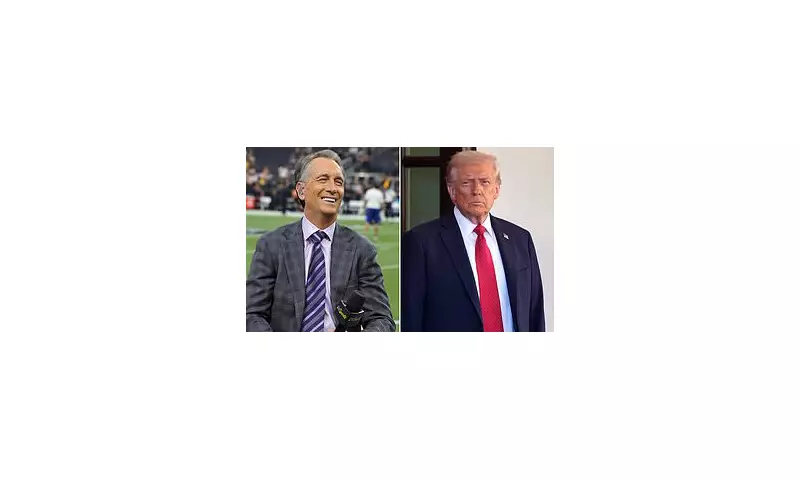
In a revealing interview that exposes the complex intersection of sports and politics, former Cincinnati Bengals wide receiver and prominent NFL broadcaster Cris Collinsworth has disclosed he turned down several invitations to visit the White House during Donald Trump's presidency.
The 65-year-old sports commentator, known for his Emmy Award-winning coverage on NBC's Sunday Night Football, made the startling admission during an appearance on the 'Full Send' podcast, though he remained tight-lipped about his specific reasons for the refusal.
The Political Tightrope in Sports Broadcasting
Collinsworth's revelation highlights the delicate balancing act faced by sports figures navigating the politically charged atmosphere of recent years. While many athletes and broadcasters have openly embraced or rejected presidential invitations, Collinsworth maintained a characteristically measured approach to discussing his decision.
"I was invited to the White House a couple of times and didn't go," Collinsworth stated, offering no further elaboration on what prompted his refusal to attend events at the Trump White House.
A Career Built on Football Excellence
The former Pro Bowl receiver's career trajectory from the gridiron to the broadcast booth has been nothing short of remarkable. After an eight-season NFL career with the Cincinnati Bengals that included three Pro Bowl selections, Collinsworth seamlessly transitioned to sports commentary, eventually becoming one of the most recognizable voices in American football broadcasting.
His current role as lead analyst for NBC's flagship Sunday Night Football programme has made him a household name among sports enthusiasts, though he's largely avoided overt political statements throughout his broadcasting tenure.
The Unspoken Divide in Sports Media
Collinsworth's disclosure comes at a time when the relationship between professional sports and political administration remains particularly fraught. The tradition of championship teams visiting the White House has become increasingly politicized, with some teams opting out entirely during various administrations.
While Collinsworth didn't elaborate on whether his decision was politically motivated, the mere admission underscores the quiet tensions that exist beneath the surface of sports media coverage. His careful navigation of the topic reflects the broader challenge facing sports personalities in an era of heightened political polarization.
The veteran broadcaster's revelation provides a rare glimpse into the private political calculations of high-profile sports figures who typically maintain neutral public personas to avoid alienating segments of their audience.





